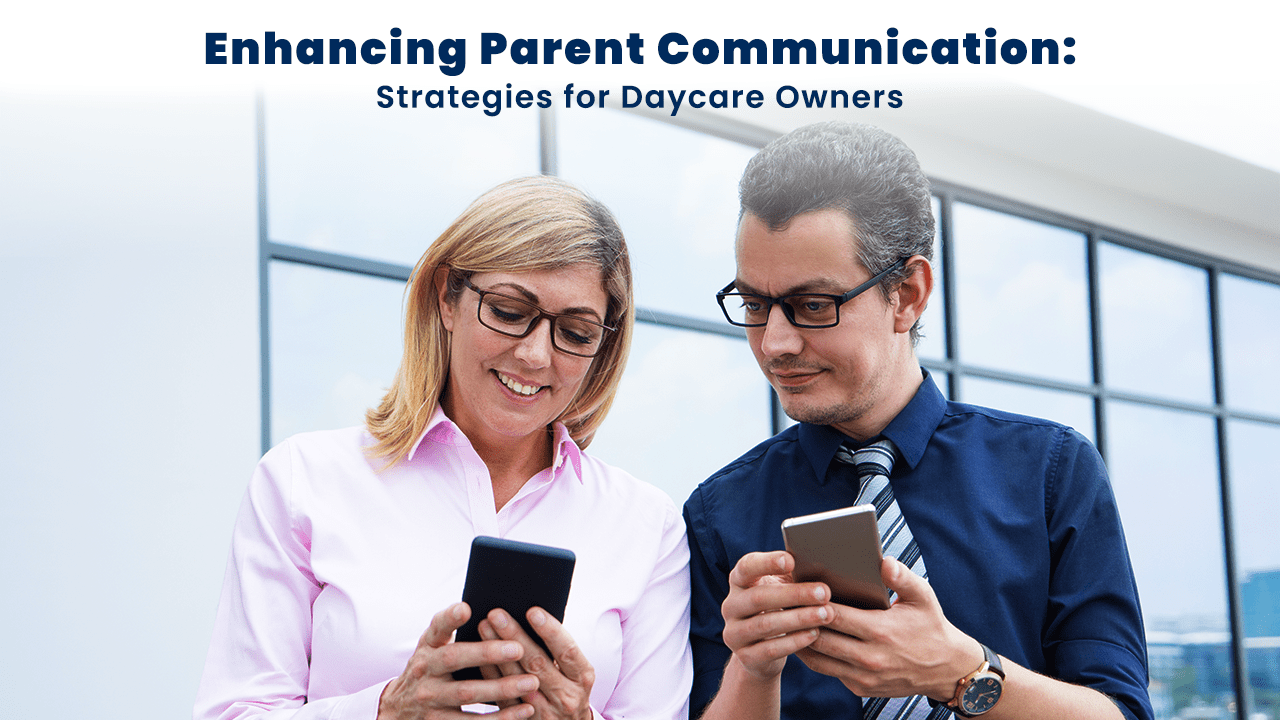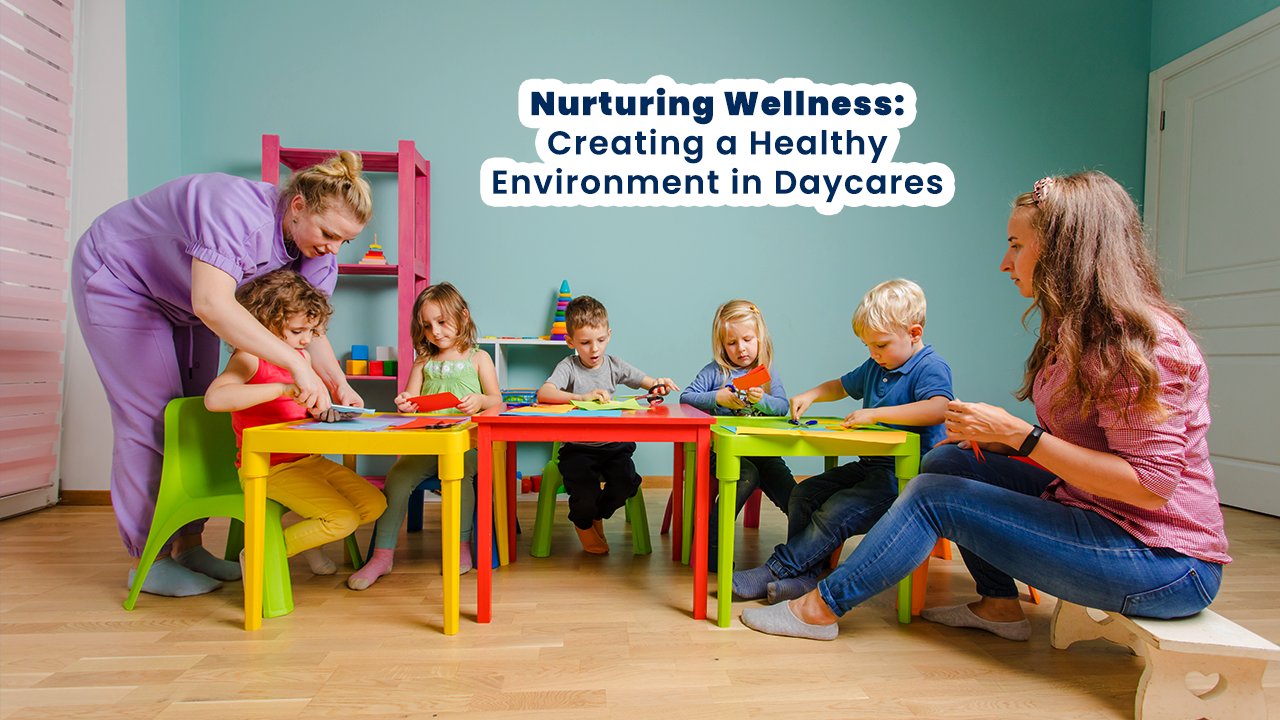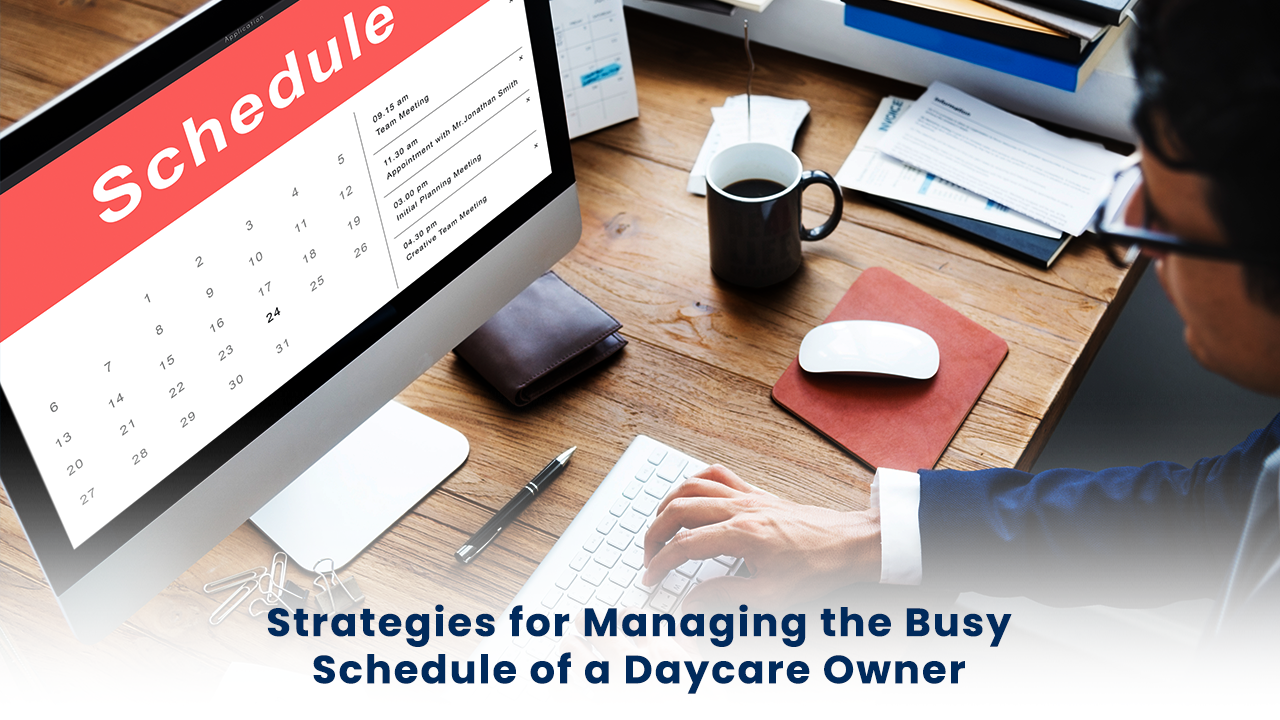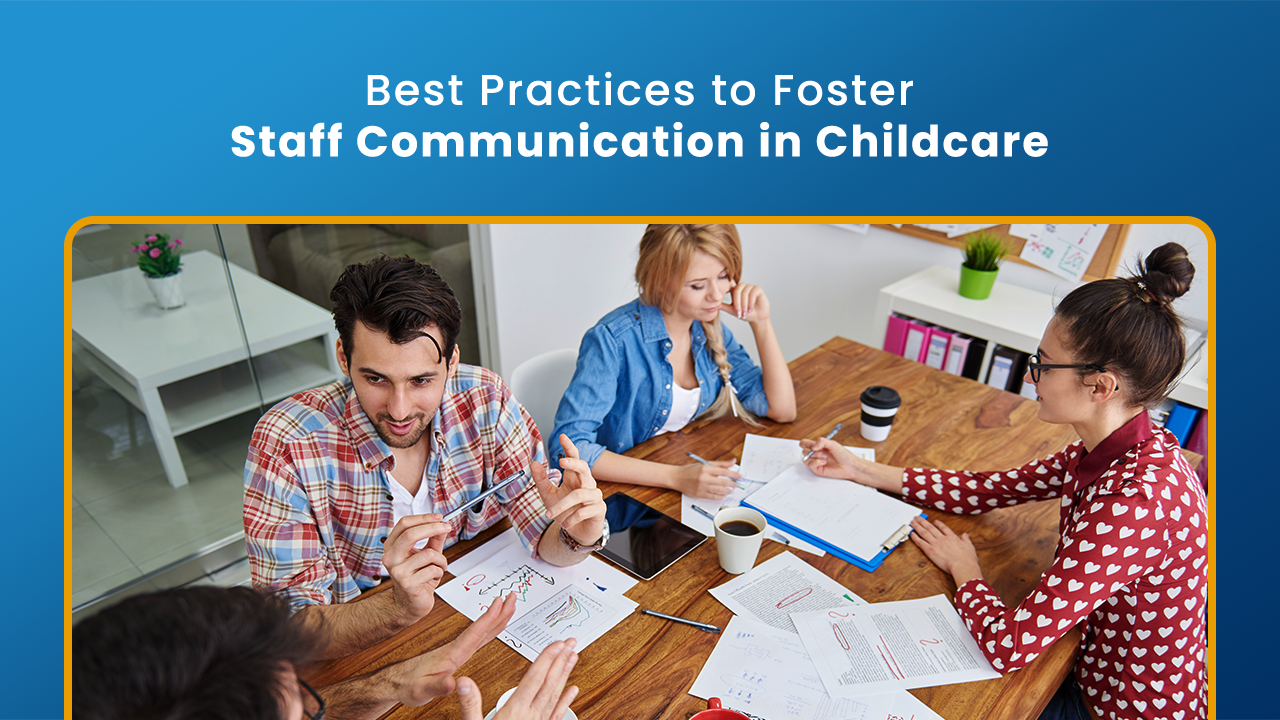
- Effective Daycare Parent Communication Strategies You Can Follow:
- Establish Shared Goals and Priorities with Parents & Families
- Connect with Parents on their Preferred Platforms
- Be Flexible for Families with Limited Access to Technology
- Host Gathered Events for Families
- Develop a Plan for Communicating with Diverse Families
- Use Direct Communication to Share Positive News and Outcomes
- Use Mass Communication for Emergencies or Unplanned Changes
- Provide Regular Feedback
- Support Your Daycare Parent Communication Strategies with 360Daycare
Do you manage a daycare center and want to improve parent communication? Do you want to ensure that all parents feel like their children are safe and secure in your care? If so, this blog post is for you! We’ll look at some of the most effective daycare parent communication strategies that enhance parent communication. Read on for tips on how to effectively communicate with the parents of the children in your care.
Effective Daycare Parent Communication Strategies You Can Follow:
Establish Shared Goals and Priorities with Parents & Families
One way that daycare centers can effectively enhance communication with parents is by establishing shared goals and priorities. This helps to build trust between the daycare center and the parents, as it shows that both parties are invested in the success of their children. It also allows for open dialogue about expectations and outcomes, so that both sides can work together to ensure the best educational experience. Additionally, this kind of communication provides an opportunity for families to share their ideas and input, which can be invaluable when it comes to planning curriculum or activities. Setting shared goals and priorities also helps to ensure a more equitable family engagement process, since everyone involved is on the same page. When done correctly, this communication can help foster strong relationships between daycare centers and parents.
Connect with Parents on their Preferred Platforms
Connecting with parents on their preferred platform is an essential step in strengthening relationships and improving communication. To ensure that families receive the right information promptly, it is essential to understand their communication preferences. This includes taking into account their religious/cultural background, gender, access to technology, and other factors. By using the right tools and platforms, daycare centers can ensure that families are informed of any new developments or changes. Additionally, centers can encourage two-way communication by providing a dedicated space for parents to ask questions or leave feedback. This opens up the possibility for parents and caregivers to share valuable insights and establish shared goals that can help support ongoing learning.
Be Flexible for Families with Limited Access to Technology
Daycare centers should be flexible when it comes to communicating with parents who have limited access to technology. According to the U.S. Department of Health and Human Services, one of the options to support the training and professional development of the childcare workforce is to provide parents with access to technology. This is especially important for families who might not have the same resources or access to technology as other families. By providing flexibility, daycare centers can ensure that all parents are included in communication and can be kept informed about their child’s progress and development. By respecting and understanding each family’s individual needs, daycare centers can build trust with parents and create a positive environment for communication.
Host Gathered Events for Families
Hosting gathered events and open discussions for parents to meet their children’s teachers, tour the facility, and learn more about the daycare’s policies and programs is a proven communication strategy to develop ways of communication between parents and the daycare. There will be a panel of experts to answer questions and provide advice. Additionally, there will be an educational workshop on effective communication between daycare parents. These events will help all families build relationships with one another and strengthen the parent-teacher bond.
Develop a Plan for Communicating with Diverse Families
It is paramount for daycare providers to recognize and understand the diverse needs of families to foster positive communication. This includes taking into account language preferences, cultural differences, and accessibility issues. To ensure effective communication with families from various backgrounds, daycare providers should develop a plan to discuss communication preferences with parents and be flexible in meeting their individual needs. Respectful, reliable communication is the foundation of successful relationships between daycare providers and families. Through proactive planning, providers can create an environment of trust and cooperation that will benefit everyone involved.
Use Direct Communication to Share Positive News and Outcomes
Direct communication is an important way for daycare centers to share positive news and outcomes with parents. It is a great way to build strong relationships, as well as to ensure that both the parents and the caregivers are on the same page when it comes to the children’s development and progress. By using direct communication, daycare centers can reassure parents that their children are doing well, which can help to build trust between the two parties. It also provides an opportunity for daycare centers to provide feedback to parents on their children’s progress, which can be an invaluable source of support and information for both parties. Direct communication is a great way for daycare centers to show that they value the relationship between themselves and the parents, as well as show their commitment to providing quality care for the children in their care.
Use Mass Communication for Emergencies or Unplanned Changes
During emergencies or unplanned changes, daycare centers should leverage mass communication resources to ensure that all parents and families are informed promptly. Mass communication can quickly distribute news to a large group of people, helping to ensure that everyone is aware of what is happening and can take the necessary steps to respond. Additionally, having an emergency communication plan in place can help to mitigate potential confusion and miscommunication during these challenging times. By using mass communication effectively and regularly, daycare centers can build trust with their families, maintain transparency, and create a more unified environment for all.
Provide Regular Feedback
Providing feedback is an essential part of maintaining a positive relationship with parents. It’s important to be mindful of the tone and content of your communication when providing feedback, as well as the language used. Reframing language from problems to goals for students and focusing on a parent’s ability to help can create a positive environment. It’s also important to consider families with limited access to technology when providing feedback, as well as being sensitive to cultural differences. By developing shared goals and priorities with parents and families, providers can create an environment of mutual respect and understanding. Through direct communication, providers can share positive news and outcomes with parents, while mass communication can be used for emergencies or unplanned changes. Setting expectations ahead of time and encouraging written communication can also help establish trust between providers and parents.
Support Your Daycare Parent Communication Strategies with 360Daycare
By implementing effective daycare parent communication strategies in your daycare center, you can improve your relationships with parents, enhance parent engagement, maximize parents’ satisfaction, and positively impact both children’s retention and developmental outcomes at your center. 360Daycare comes with a mobile application that gives parents peace of mind by letting them track their children’s daily activities and communicate with the daycare in real time. The application supports two-way communication where parents can track children’s mood, food intake, medications, and a lot of other activities.


